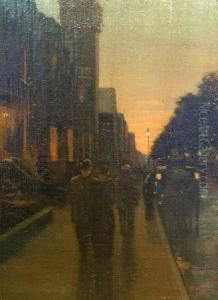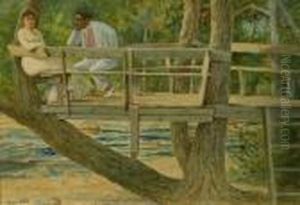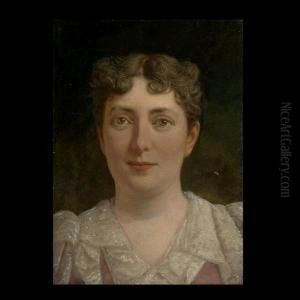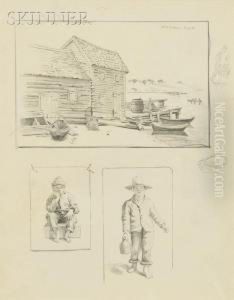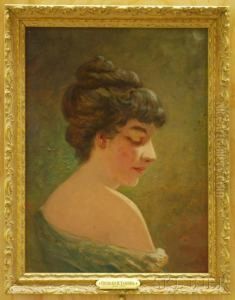Charles Henry Turner Paintings
Charles Henry Turner was a groundbreaking American zoologist and research scientist renowned for his significant contributions to the fields of entomology and animal behavior. Born on February 3, 1867, in Cincinnati, Ohio, Turner was a pioneer, especially as an African American in the predominantly white field of scientific research during his time. Despite facing racial discrimination and limited access to academic and professional opportunities, Turner persevered, demonstrating exceptional intellect and dedication from an early age.
Turner's academic journey was marked by his insatiable curiosity and brilliance. He earned his B.S. degree from the University of Cincinnati in 1891 and his M.S. degree in biology from the same institution in 1892. His thirst for knowledge led him to the University of Chicago, where he completed his Ph.D. in 1907, making him one of the first African Americans to earn a doctorate in zoology. Turner's doctoral research, which focused on the behavior of ants, was pioneering and laid the foundation for future studies in animal cognition and behavior.
Throughout his career, Turner published over 70 papers on topics ranging from the behavior of insects to the educational theories of African Americans. He was particularly fascinated by the cognitive abilities of insects, conducting innovative experiments that demonstrated ants' ability to learn maze patterns and bees' ability to see color. His work challenged prevailing misconceptions about the cognitive limitations of insects and contributed to the broader field of comparative psychology.
Despite his accomplishments, Turner struggled to find employment in major research institutions due to racial prejudices of the time. He spent much of his career teaching at historically black colleges and universities, including a long tenure at Sumner High School in St. Louis, Missouri, where he continued his research while inspiring the next generation of scientists.
Charles Henry Turner's legacy extends beyond his scientific achievements. He broke racial barriers in the scientific community and demonstrated the profound contributions African Americans could make to science and academia, despite systemic obstacles. Turner passed away on February 14, 1923, in Chicago, Illinois, but his pioneering research and dedication to education continue to inspire scholars and scientists around the world.

